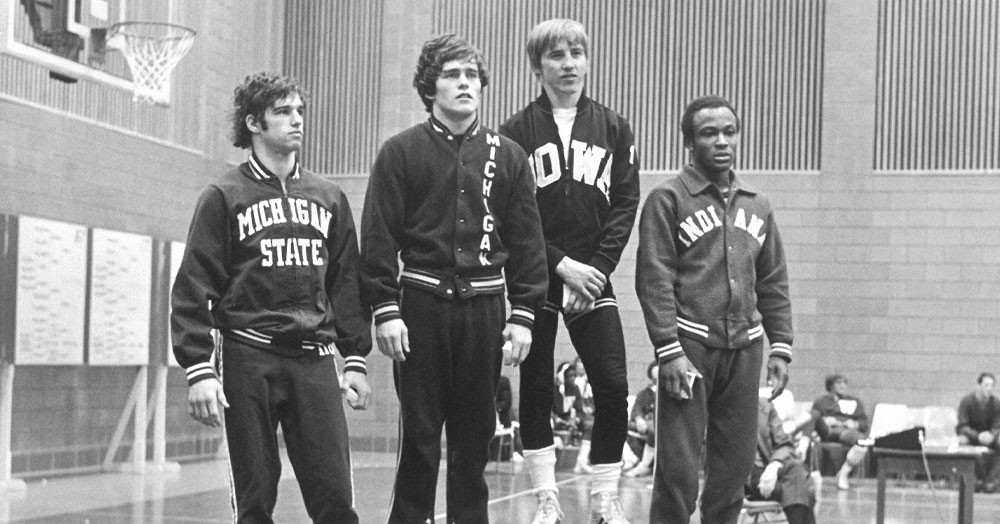Iowa Athletics Hall of Fame
J. Daniel Sherman (73BS)
J. Daniel Sherman learned a lesson when he made his first road trip as a wrestler at Iowa.
Sherman, a freshman at the time, joined the Hawkeyes on a trip to Ann Arbor, Michigan, where he was paired up with a heavyweight wrestler he called “Big Mike.”
“Nobody chose the heavyweight,” Sherman says. “And nobody chose me, because they really didn’t know me.”
Sherman needed to cut weight to be able to wrestle the next day, but his roommate didn’t have such concerns.
“I couldn’t eat anything,” Sherman says, laughing. “He goes out and gets all kinds of snack foods. And he sits there and tells me how great these chips are. ‘Hey, I’ve got some peanuts. You want some?’ He was torturing me the whole night.”
Then it came time to go to bed, and his roommate had another request.
“He says, ‘I’m from Minnesota, and in Minnesota, we sleep with the windows open,’” Sherman says. “It was 20 degrees outside, it’s snowing. He insists on having the window open. Coldest night of my life. Next morning we had a snow drift inside the hotel room. That was my first road meet.
“The lesson there was, ‘Choose your roommates wisely.’”
Sherman, though, knew he had made the right choice to come to Iowa.
A two-time All-American, Sherman was the 1973 NCAA and Big Ten champion at 118 pounds. He was Iowa’s 1973 Big Ten Medal of Honor Award recipient. During his career he helped Iowa to two Big Ten runner-up team finishes, an 11th-place finish at the NCAA championships in 1972 and a tie for seventh in 1973.

PHOTO: HAWKEYESPORTS.COM
Now he goes into the UI Athletics Hall of Fame, the latest in a long list of wrestlers from a program that has become one of the nation’s best.
“It’s really an outstanding list of wrestlers,” Sherman says. “So I’m just happy to be included.
“It’s very special to be among them. It’s a list of people I admire and respect. The ones who wrestled after I wrestled were people I watched in the NCAAs, people I watched on the Big Ten Network.”
Sherman, it seemed, was bound to become a Hawkeye. His two high school coaches, Tom Halford (59BSPE, 66MA) and Steve Combs (63BA), were successful wrestlers at Iowa. His father wrestled for Dave McCuskey at Iowa State Teachers College before McCuskey went on to coach with the Hawkeyes.
Sherman, who is retired, lives in Atlanta now. But he still follows Iowa’s wrestling program.
“We were a good program, but we weren’t a great program when I was there,” Sherman says. “Everything took off when (Dan) Gable came, and it kept going. So, to be honored with all of the great wrestlers who came through there, it really means a lot to me.”
—JOHN BOHNENKAMP
